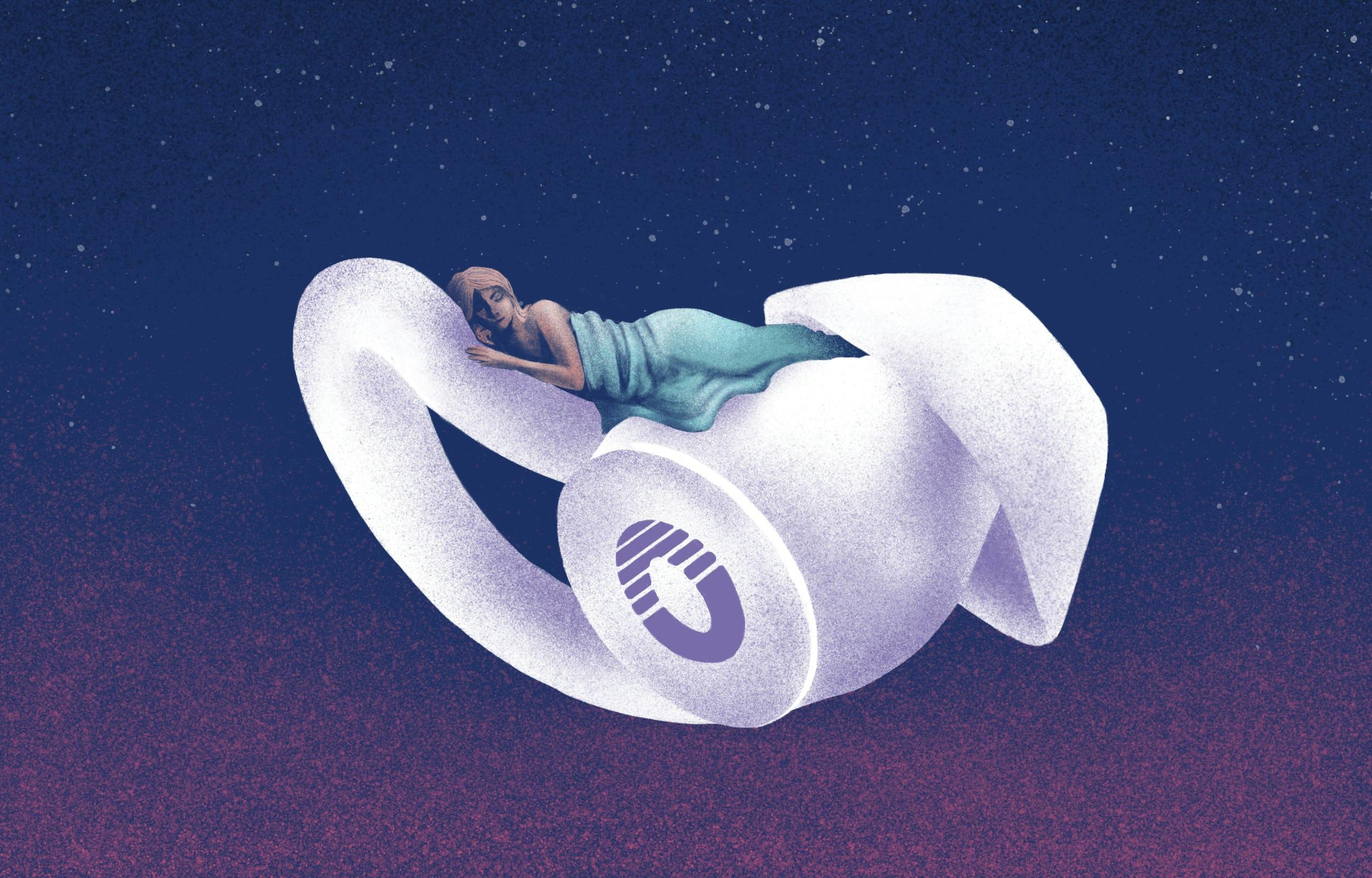Poor sleep is an underestimated health issue. These earbuds hope to solve it.
Do you ever fall asleep listening to music? Or even white noise?
Whether you’re hoping to create a peaceful soundscape—or drown out your loud neighbors—it turns out that sound can have a big impact on our ability to fall asleep. And the quality of your sleep once you get there.
That’s the big idea shared by three former Bose engineers who struck out on their own to found a new company. That company, Ozlo Sleep, recently came out of stealth—and is seeking to revolutionize the sleep aid industry.
Their initial product, the Sleepbuds, are earbuds designed to help a user fall asleep and track how well they slept.
So how do they work? And can earbuds really count as a medtech device? Today, we’re exploring all of that and more. Including why sleep is a critical health concern in the first place.
Who knows, maybe we’ll convince you to reevaluate your own approach to sleep—with or without fancy earbuds.

Sleep as a public health concern
Your sleep hygiene is anything but trivial. Since sleep is when our bodies repair damage, a lack of quality and consistent sleep can contribute to a host of health problems—ranging from mental illness to heart disease.
And these effects aren’t just individual. The statistical public consequences of poor sleep quality have been leading more and more health authorities to look at poor sleep and sleep disorders as a public health concern.
Here are a few shocking figures. 71,000 people in the U.S. get injured every year in sleep-related traffic accidents. And 1,550 people die in such accidents. 46% of individuals with frequent sleep disturbances report missing work or events or making errors at work, compared to 15% of healthy sleepers. And if we’re talking about impacts on overall society, the annual financial cost of insomnia in the U.S. is estimated to be between $92.5 billion and $107.5 billion.
Whether you yourself are dealing with poor sleep or not, there’s a good chance someone else’s sleep quality impacts you. And the consequences can be disastrous.
How the Ozlo Sleepbuds work
With these high stakes in mind, the founders behind Ozlo Sleep got to work creating a sleep health intervention that’ll be widely usable—and personalizable.
The Sleepbuds help users get to sleep by streaming content through their earbuds, something they may already be doing with their normal headphones. But the Sleepbuds take that application a step further, with the devices’ biometric sensors detecting both when the user has fallen asleep and potential sleep disturbances.
The Sleepbuds then provide users with a personalized report of their sleep quality in the morning. The idea is that users can get very curious and strategic, optimizing their way to their ideal night’s sleep.
The team plans to build out a suite of products beyond their hardware—including analytics software and therapies integrated into the product.
Our perspective: Medtech tackles the sleep crisis
Beyond increasing usability by turning an already-familiar device into a health tool, Ozlo’s product is also a strategic market play.
Apple (or Apple-owned) products dominate the audio technology space. Positioning as a wellness device just makes sense to allow them to compete—and price high.
Ozlo co-founder N.B. Patil put it best, saying: “Sleep is one of the big untapped markets—there’s a lot of white space. Currently, many sleep solutions are drugs. Everybody is looking for a digital solution. [Investors] see us actually getting into that space and helping people get a better night’s sleep.”
The startup raking in a $10.1 million Series A round while still in stealth (and in this year’s competitive venture ecosystem) is a positive sign for this market.
Of course, Ozlo Sleep isn’t the only sleeptech innovation we’re watching. Other tech-enabled sleep interventions we’re excited about include: Cerebra’s Sleep System for in-depth sleep quality monitoring; Zennea Technologies’ wearable device for OSA and chronic snoring; and the Somnomat Casa robotic bed developed at ETH Zurich’s Sensory-Motor Systems Lab.
All of that being said, we think it’s important to remember that, for individualized medtech interventions to be most effective, people’s lives and societies need to be set up to promote these health-seeking behaviors. In other words, if people’s lives systemically sabotage sleep quality, there’s only so much sleeptech innovation can do.
To optimize for these devices’ success—and create a healthier, better-sleeping world overall—we need to promote sleep health education and policy. That includes reevaluating school start times, disincentivizing drowsy driving, and including screening for sleep disorders in routine preventive health care.
Once we’ve gotten a better handle on these systemic factors beyond poor sleep, we’ll be giving patients and users a better baseline from which to optimize their sleep. And optimize their overall health in the process.